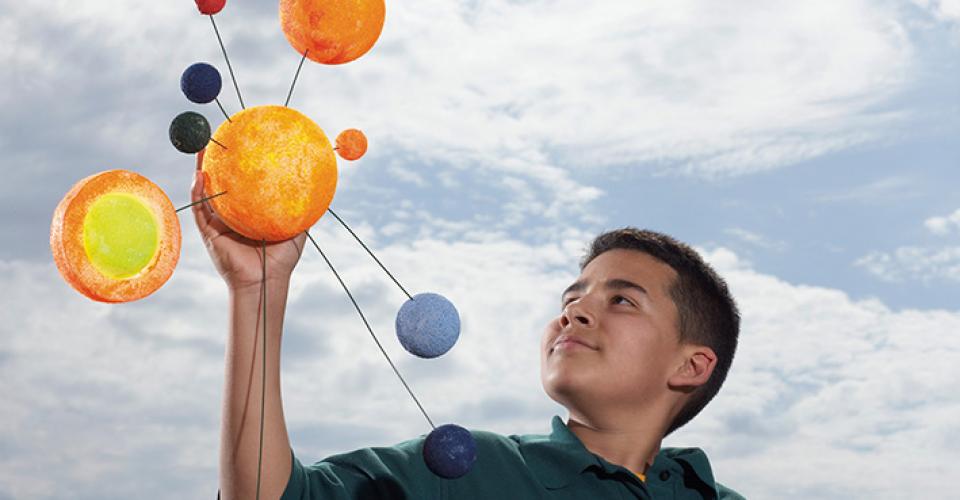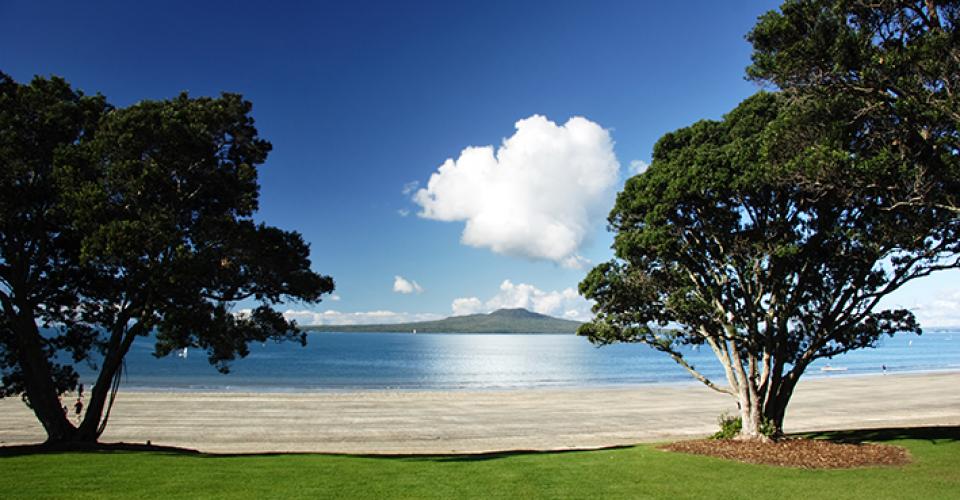Digital technologies and the future of science education
13/07/2015What opportunities do digital technologies provide for science education, asks SHELLEY HERSEY.
I’ve been thinking recently about how science education has changed since I was at primary school in the eighties. With the high speed pace of technological change, are we as teachers keeping up or are we making do with what we’ve always done? What opportunities do digital technologies provide? Do we need to change the way we teach science?
How do we teach science effectively?
According to Prime Minister John Key, “International studies show that we are not keeping pace with achievement in other countries, particularly in maths and science. In fact, we have been on a gradual downward slide since the early 2000s”. This is a strong mandate to change the way we are teaching science.
To teach science effectively, we need to understand the fundamental principles on which science is based – the nature of science. It’s not about being a scientist as such, but about “ensuring that young New Zealanders are enthused by science and able to participate fully in a smart country where knowledge and innovation are at the heart of economic growth and social development” (Looking Ahead: Science Education for the Twenty-First Century – Chief Science Advisor’s report, 2011).
According to Pulitzer Prize winner, Carl Sagan, in his final interview, “Science is a way of thinking much more than it is a body of knowledge”. So, as teachers, we don’t have to have a huge bank of scientific knowledge to teach science well. This is particularly true in the context of the modern, connected classroom where information and, indeed, scientists are just a mouse click away. What can be more challenging is to make science relevant to the individual students we teach, and give science a human face. We need to recapture the awe and wonder of science and be innovative in the way we approach science.
We don't have to be experts
I’ve always been interested in science, and as a science graduate it is not a subject I struggle to grasp. I willingly admit, however, that my most memorable and successful moments of science teaching have been those where I have not played the role of an expert; moments where I have allowed my students to follow their own inquiries and connect with people outside the classroom. Technology and social media not only allows these connections, it encourages them.
Since joining the LEARNZ team I have been lucky enough to facilitate many such connections between experts and students. Field trips take students virtually to places they may never otherwise get to go, and introduces them to experts they are not likely to ever meet.
The value of virtual field trips
It always amazes me just how much I learn within the three days of a field trip. Being fully immersed in a topic, on location, and in the presence of a variety of experts is incredibly engaging. Feedback from teachers using LEARNZ has also reflected this with comments such as, “my students learnt a huge amount during the trip and were able to teach their peers about what they have learned”. The power of LEARNZ is that it covers relevant topics by utilising different media in real-life contexts.
Students can talk directly to scientists and ask them questions during audioconferences, then watch videos that follow their work. To see an example of this, watch the video ‘Life of a Scientist’ recorded during the Wandering Whales field trip.
 Above: Seeing science in action: This is a humpback whale skin biopsy collected during the LEARNZ Wandering Whales field trip. Students were able to see scientists shoot a dart at a whale from a boat out on Cook Strait and then watch as the sample was processed. The scientist also explained how the DNA analysis of the sample fitted into a bigger picture – contributing to a global database of whale migration that all scientists can use.
Above: Seeing science in action: This is a humpback whale skin biopsy collected during the LEARNZ Wandering Whales field trip. Students were able to see scientists shoot a dart at a whale from a boat out on Cook Strait and then watch as the sample was processed. The scientist also explained how the DNA analysis of the sample fitted into a bigger picture – contributing to a global database of whale migration that all scientists can use.
Students can learn about the nature of science through the virtual reality of a field trip; seeing scientists in action in awe-inspiring environments including Antarctica, offshore island sanctuaries, wetlands, or on board a boat involved in the Cook Strait Whale Project. They can see how science comes alive in a variety of New Zealand contexts, and use the language of science in an authentic way as they navigate their way through a field trip website.
The readiness of your minds to suspend reality for the virtual
When I was teaching, it always impressed me just how readily students suspended reality and excitedly took part in field trips. Comments like “I’m going snorkelling tomorrow on the Marine Reserves field trip” were common.
It was a little more challenging explaining this to parents who were concerned that their child did not have flippers and a snorkel, and why had they not seen a permission slip. But parents too can be a part of field trips, as students can log in to the site from home and share their learning.
Virtual field trips engender personal science enquiry
My most rewarding moments as a LEARNZ field trip teacher haven’t just come from exploring amazing places, but also from hearing how students take what they have learnt to equip themselves that they might embark on their own science inquiries. Often classes get involved in their own local investigations and community projects as a result of their involvement in a virtual field trip.
 Above: Shelley, along with ambassadors from a variety of New Zealand schools, shares the work of Sven Uthicke, a marine biologist, as he works in Antarctica during the LEARNZ Ocean Acidification field trip.
Above: Shelley, along with ambassadors from a variety of New Zealand schools, shares the work of Sven Uthicke, a marine biologist, as he works in Antarctica during the LEARNZ Ocean Acidification field trip.
The future of science education lies beyond the four walls of a classroom
LEARNZ virtual field trips are just one of the vehicles by which we can engage students in effective and innovative science learning. Experiences such as those offered by LEARNZ are changing the way we are able to access and learn science. I believe the future of science education lies in our ability to utilise digital technology to go beyond the four walls of our classroom, and allow our students to access the wealth of global knowledge now freely available.
So, rather than needing to be experts in science, we need to teach our students how to find, interpret, and productively engage with online networks and digital resources. For students to be successful in this digital environment they need a teacher’s wisdom and high level of literacy skills to guide them.
To develop the skills and attitudes that make up the nature of science, we need to remember that science is more than test tubes, white coats, and Bunsen burners. Students need to see the reality of science, and LEARNZ field trips show this because they involve real people doing real science in their daily work.
Future-focused science education resources
LEARNZ and other digital technologies allow students to connect globally, share their voice, and act locally. You may like to check out these resources to support future oriented science education:
- The new TKI Science Online resources
- The updated New Zealand Science Teacher website
- Fun Science and Technology for Kids
- Subscribe to the Heads Up Newsletters from the Royal Society to find out about new science resources and events
- LEARNZ – free virtual field trips for New Zealand schools
Help create a future generation of scientists…
It is all about inspiring awe and wonder, and getting our students to look at their world with a questioning mind, arm them with the strategies to test their own theories, and further their learning. Luckily, technology is making this both possible and free to access.
As Albert Einstein once said, “Imagination is more important than knowledge”. LEARNZ and other online initiatives can capture our students’ imaginations, inspire a greater interest in science, and help create a future generation of scientists.
- Shelley Hersey is a LEARNZ field trip teacher, working for CORE Education.
- Thank you to Core Education and LEARNZ for permission to reprint this article. It originally appeared on the CORE blog page.

























Post your comment
Comments
No one has commented on this page yet.
RSS feed for comments on this page | RSS feed for all comments